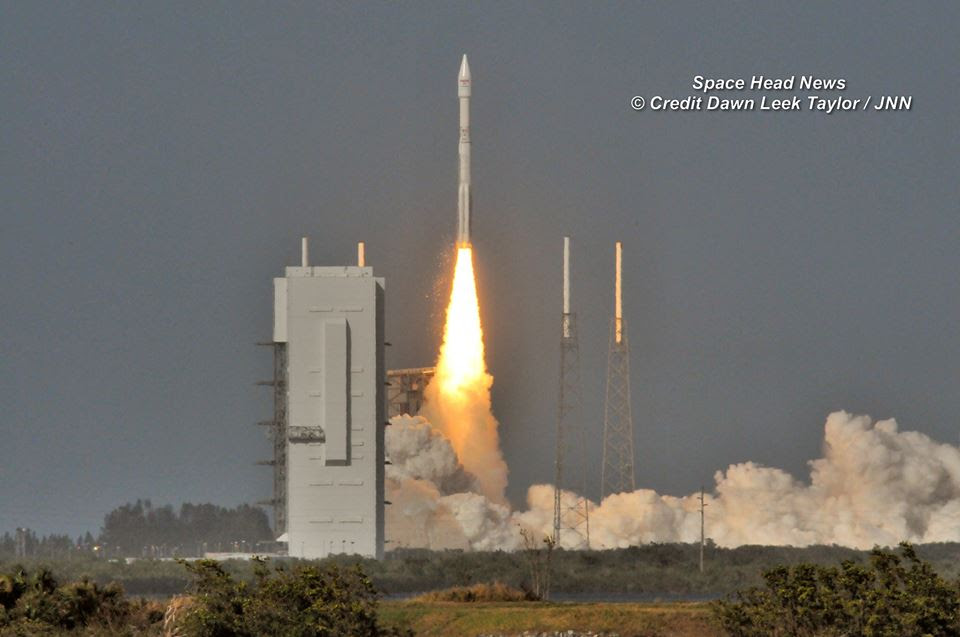Amazing Atlas Seaside Blastoff Highlights EchoStar 19 Zoom to Orbit – Photo/Video GalleryKen Kremer द्वारा |

Fiery blastoff of a United Launch Alliance (ULA) Atlas V rocket carrying the EchoStar XIX satellite from Space Launch Complex-41 on Cape Canaveral Air Force Station, Fl., at 2:13 p.m. EST on Dec. 18, 2016. Credit: Ken Kremer/kenkremer.com
CAPE CANAVERAL AIR FORCE STATION, FL - Sunday afternoons blastoff of the powerful Atlas V rocket from a seaside Florida launchpad has produced a plethora of amazing imagery as the 20 story tall rocket zoomed to orbit with the 7.5 ton EchoStar 19 high speed internet satellite.
EchoStar 19 or XIX, is the highest capacity broadband satellite ever built and launched and promises a vast increase in capacity for homes and businesses subscribing to HughesNet® across North America.
Check out this expanding and explicit gallery of eyepopping photos and videos from several space journalist colleagues and friends and myself - and revealing how EchoStar earned its way to geosynchronous orbit from prelaunch to launch atop a United Launch Alliance Atlas V rocket.
The ULA Atlas V blasted off from Space Launch Complex 41 (SLC-41) Cape Canaveral Air Force Station at 2:13 p.m. EST at lunchtime on Sunday, Dec. 18, 2016.

ULA Atlas V rocket and EchoStar XIX satellite lift off from Space Launch Complex-41 on Cape Canaveral Air Force Station at 2:13 p.m. ET on Dec. 18, 2016. Credit: Julian Leek

Launch of EchoStar XIX satellite atop ULA Atlas V from pad 41 on Cape Canaveral Air Force Station at 2:13 p.m. ET on Dec. 18, 2016. Credit: Dawn Leek Taylor
Here’s a trio of launch videos revealing different perspectives of the launch, including views from a remote video at the pad, a remote time-lapse camera at the pad, and from the Kennedy Space Center Visitor Complex at the Apollo-Saturn center.
Video Caption: This 160X speed time lapse starts at 5AM with a fogged camera. It follows last minute ULA prep work, w/ launch at 03:15 on the video on Dec. 18, 2016. It then follows pad cool down and securing by ULA, and concludes with our remote camera pickup at 3:45PM. We even had a little rain shower at the end. Credit: Jeff Seibert
Video Caption: Atlas V rocket launched the US EchoStar 19 high-speed internet satellite on Dec 18, 2016 from Cape Canaveral Air Force Station at 2:13 p.m. EST. Credit: Tania Rostane
Video Caption: Launch of EchoStar 19 high speed internet satellite for North America on a United Launch Alliance (ULA) Atlas V rocket from SLC-41 on Cape Canaveral Air Force Station at 2:13 p.m. EST on Dec. 18, 2016 - as seen in this remote video taken at the pad. Credit: Ken Kremer/kenkremer.com
Stay tuned here for Ken's continuing Earth and Planetary science and human spaceflight news.


No comments:
Post a Comment